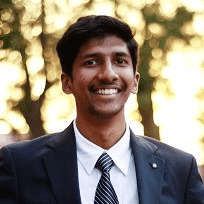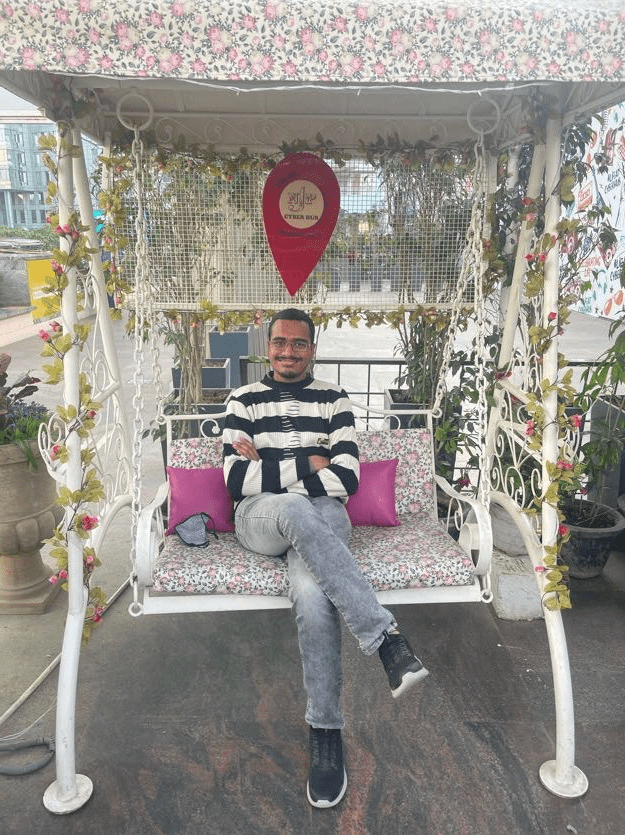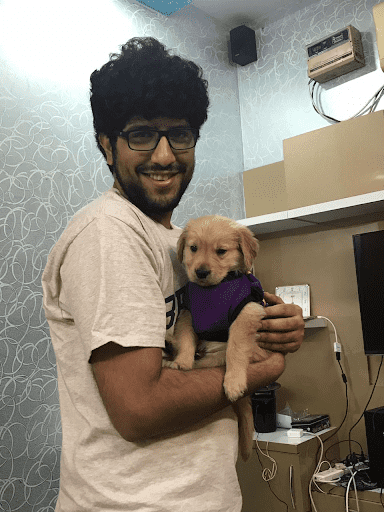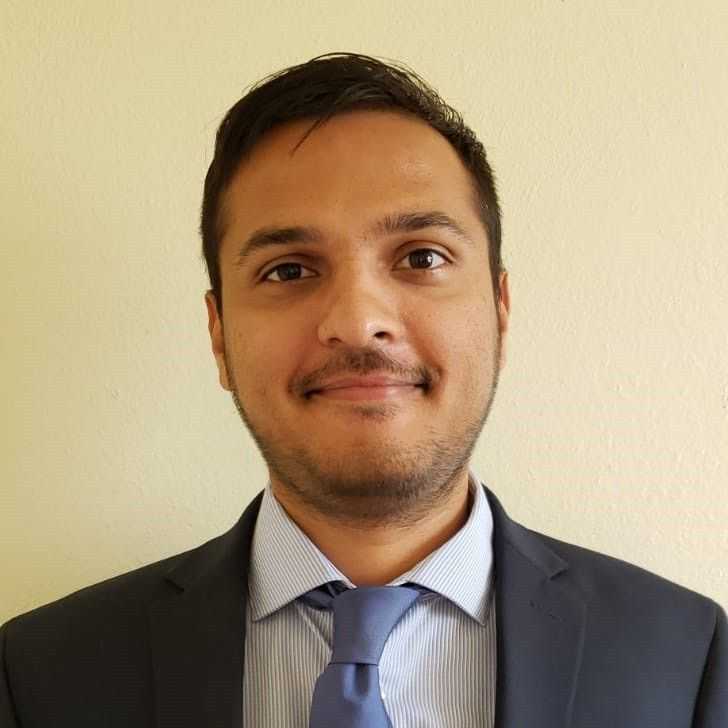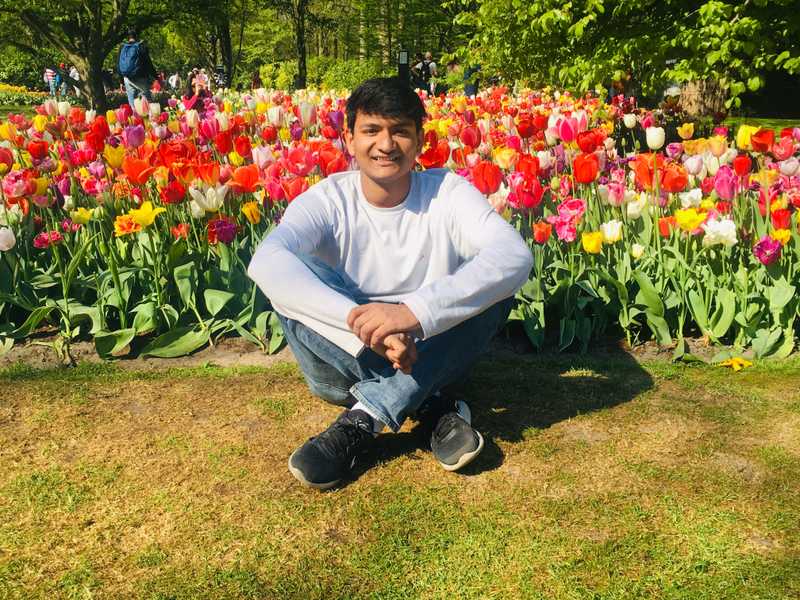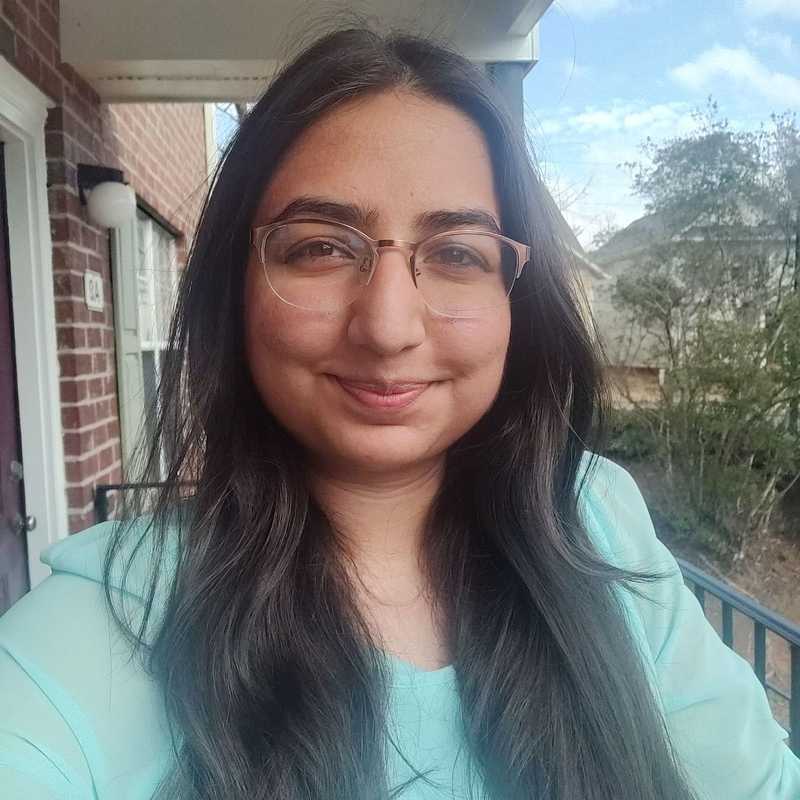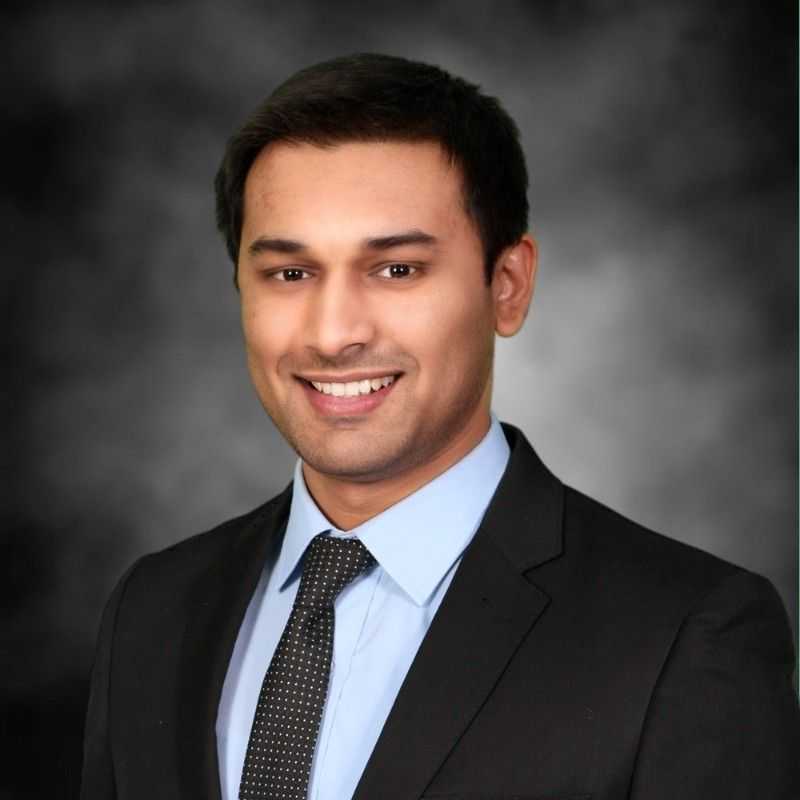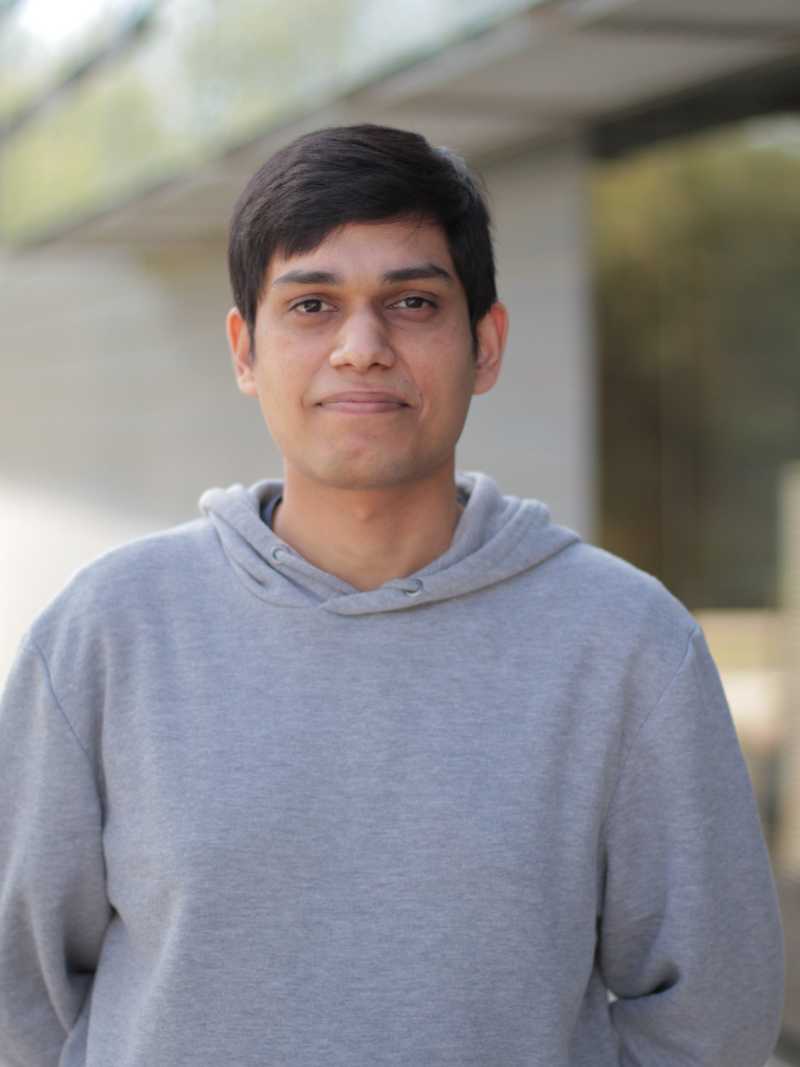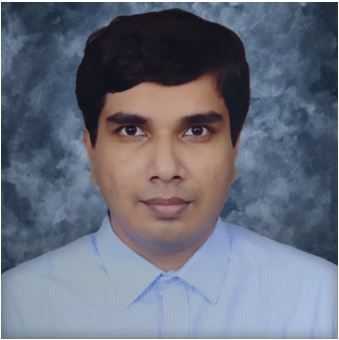
Choose your subject
QnA
Each field of pure science has so many subfields. How can one figure out what he or she likes the most?
Devashi Gulati: If you have a free... read more
Devashi Gulati: If you have a free day with no social obligations and if you feel like opening a book of a particular subject to simply learn more, you might have a passion for that subject. If the teacher teaches X amount, and if you feel like doing X+1 (like just reading more about it, doing some extra questions from the book), you do have an innate curiosity for that subject. There might be subjects that you do not find fascinating enough to go that extra mile. You’ll just understand the syllabus, and while you will spend time thinking about those concepts, you might not feel like making the effort to do more. That means that subject doesn’t intrigue you enough. And you should never be troubled by the fact that there is more than one field that excites you. When you’re applying for a PhD, it isn’t simply the field that contributes, the advisor, the funding play an important role. We don’t live in an ideal world. You might prefer to go for the subject where the advisor is better and where the program is self-funded, even if that subject wasn’t on the top of your list of favorites. The bottom line is, choosing a subfield of interest is a decision that depends on multiple factors.
Read about Devashi Gulati's journey here.
Hitesh Agarwal: Talk to seniors. There are... read more
Hitesh Agarwal: Talk to seniors. There are tons of Bitsians who I haven't even met or know properly but they were the most helpful. Talking about their research even if it is not related to your field of interest, helps a lot.
Read about Hitesh Agarwal's journey here.
Does CG play the main/eliminating role in pursuing research?
Devashi Gulati: CG is, of course, important... read more
Devashi Gulati: CG is, of course, important because it opens more doors for you. But I would also say that it's just opening more doors, you have to still do the work to walk through them and look for them. But it’s not like you cannot do research without a good CGPA.
Read about Devashi Gulati's journey here.
Sunny Guha: Indian professors will look at... read more
Sunny Guha: Indian professors will look at your CGPA. But if you have a low CG, counter that with projects with very good recommendations. It's not just one thing that matters in these admits. Just have something to say, “hey, I don’t have a good CG but look at my physics, my GRE score is good, my internships are good.” So you just have to find that balance.
Read about Sunny Guha's journey here.
Vignesh Kumar: No, that isn't the case,... read more
Vignesh Kumar: No, that isn't the case, if you have a low CG and want to go for Masters, then it would be better if you have projects under your belt. That would compensate for not having a low GPA.
Read about Vignesh Kumar's journey here.
Shourya Bose: Not quite, the right combination... read more
Shourya Bose: Not quite, the right combination of CG and Papers published works. With the very obvious disclaimer that if you don’t have a lot of previous research, the ONLY way for a professor to judge you is by looking at your CG.
Read about Shourya Bose's journey here.
Sahil Desai: GPA is very important for... read more
Sahil Desai: GPA is very important for getting scholarships but is not the only factor for getting an internship. Pursue a masters even if you have a GPA around 7 or above. You can compensate for low CGPA in the form of projects and internships. Good LoR’s matter a lot.
Read about Sahil Desai's journey here.
Hitesh Agarwal: It is much easier if... read more
Hitesh Agarwal: It is much easier if you have a good GPA, it helps you get pass through the first filter of hiring departments. That being said, it is not the only requirement. If you have good research experience, publications and have passion for a topic, I have seen group leaders fighting to academic departments for students. Of course, it is much easier in Europe as here hiring is usually done by the group leader and not academic department.
Read about Hitesh Agarwal's journey here.
Do online certifications help in building the profile?
Sunny Guha: Not at all for Academia.... read more
Sunny Guha: Not at all for Academia. But they lift up your profile. In LinkedIn, recruiters have certain keywords when they’re looking for people, they would search you with it. If you have these certifications, the likelihood of your profile coming up in the recruiter search would be more. The courses by themselves are very nice but the certifications are useless so you don't have to chase a certification.
Read about Sunny Guha's journey here.
Shourya Bose: Don’t hesitate to upskill from... read more
Shourya Bose: Don’t hesitate to upskill from non-college sources like online courses, etc. In today’s internet-connected world, a vast amount of information is at your fingertips. It remains upto you to use these resources and information to shape your future professional career.
Read about Shourya Bose's journey here.
Are applicants expected to have significant knowledge of the domain they wish to research in?
Sunny Guha: Most of the time you don't even have the skills required for certain Ph.D. positions, and people understand that because you're not meant to have those. If you have those skills, you would have a Ph.D. It's just whether you're interested in those areas, your Ph.D. advisor or the university, and whether you know the necessary basic skills to acquire what you need to acquire during the research that factors in the decision process of choosing you.
Read about Sunny Guha's journey here
How can one be sure that their passion towards the field won't die away? If it can be quantified in any way?
Shourya Bose: Firstly, you should have some research experience so that you know what you are doing. If the field is very theoretical then ask yourself if you will be able to be committed enough to pursue 5 years of research in this field. Secondly, if the field is of engineering then try to ensure that the field is generalized enough that you are in demand for industrial work. Skills are generalizable in an engineering domain and can be used in the market industry, if you don’t want to continue in academia.
Read about Shourya Bose's journey here
What kind of personality traits are required for a person who's in this field?
Devashi Gulati: Perseverance. Because research is pretty... read more
Devashi Gulati: Perseverance. Because research is pretty lonely. You need to make sure that you are determined to do it, you need to have the grit to stay with it when it gets tough. You have to be a person who is a little stubborn at that time in a good way. That's important.
Read about Devashi Gulati's journey here.
Shourya Bose: A mixture of perseverance towards... read more
Shourya Bose: A mixture of perseverance towards intellectual depth and being creative also to do something new.
Read about Shourya Bose's journey here.
How competitive is this field? And could you comment on the growth in this field?
Devashi Gulati: If I want to become... read more
Devashi Gulati: If I want to become a professor in mathematics, my journey will be this PhD, then a postdoc for two to three years. Then I would be a tenure track professor for around five-six years, at least. The harsh reality is only a very small number of people get from PhD to postdoc, and then again a very small number from postdoc to tenure track professor. But there are other research opportunities that exist. For example, there is research and innovation happening in the industry: technological industry, bio-related industries. As a PhD, you have the option of going into industrial research.
Read about Devashi Gulati's journey here.
Abhishek Sethi: Academia is really competitive. To... read more
Abhishek Sethi: Academia is really competitive. To give you perspective, Harvard Physics at one point, received approximately a total of 1000 applications. A batch of 50 would be selected for their program and only 3-4 would get postdoc positions. You need innate talent, hard work and luck to thrive in academia.
Read about Abhishek Sethi's journey here.
Shourya Bose: In general, there are huge... read more
Shourya Bose: In general, there are huge vacancies for research fields. Three-fourth PhDs of engineering sciences go into industry as opposed to three-fourth PhDs in science going to academia.
Read about Shourya Bose's journey here.
What is your perspective on the corporate industry?
Sunny Guha: The industry is research but... read more
Sunny Guha: The industry is research but with a lot of constraints around you. The final goal is to make money. If there's something that doesn't make money, there is no point doing research about it. And so you have to become creative, you have to find ways of optimizing your work.
Read about Sunny Guha's journey here.
Abhishek Sethi: People in corporations are great... read more
Abhishek Sethi: People in corporations are great executors, if they have a project, they’ll get it done. Their speed of execution, coordination, teamwork is remarkable. But speed doesn't mean better outcomes, you could be pursuing absolutely bizarre objectives with perfection and efficiency. Freedom is limited, you have to brutally follow limited objectives governed by governance structure. Like if in Walt Disney, you tell them that you wanna design a quantum computer, it’s unlikely for them to pursue it. On the other hand, in academia, you have more freedom on what problems you want to work on. Work is slow though. The output of a few months might just be some coding scripts. But there’s a lot of time to explore and gain more perspective along the way, and this often leads to more radical innovations. But you need to be brilliant to make it through academia, only a handful of applicants are accepted for Ph.D. and even fewer of Ph.D.'s make it to postdocs.
Read about Abhishek Sethi's journey here.
Devashi Gulati: Corporate: There is a lot... read more
Devashi Gulati: Corporate: There is a lot more structure and teamwork. You will log in and log off at a certain time. It's as a team you're working on a project, so you have that support Research: You make your own structure. You have to do the additional task of planning and working out how to do it. You never switch off from your job. But you also have the advantage of “doing stuff later.”
Read about Devashi Gulati's journey here.
Any tips you want to give to students who are applying for off-campus research internships?
Shourya Bose: I listed 20 professors out of which 4 or 5 responded and then chose IISc. Do some degree of due diligence before applying. Check out the professor's website and check if he/she is even accepting interns or not. Spend some time analysing their work and whether you want to work with that professor or not. If you curate your list this way, I’m sure that 4 or 5 responses from 30 mails is possible.
Read about Shourya Bose's journey here
Is CG important for getting an off-campus research internship?
Shourya Bose: It depends on the professor. Even if you’re lacking in grades, write about your expertise and projects and many times professors forgo the idea of measuring you by grades.
Read about Shourya Bose's journey here
Is research in the corporate world competitive? How can one get exposed to it?
Soorya Rethinasamy: Yes, it definitely is. Before BITS started this Practice School 2 concept, research oriented jobs didn't take Bachelors. But if you wanna explore research under professors, it doesn't seem that competitive. You can find a professor interested in the field you wanna pursue. Getting into the side of research in corporate is more competitive, because they have higher demands of qualifications. If you don't want to go for studies again, you can skip the Masters. You can directly apply to the fellowships at Google or Microsoft. This is a two year assistantship where they expect you to go for a Ph.D. later on, or become a research scientist over there. The application procedure for Microsoft is more of a referral kind of process, where you have to fill the application, write a statement of purpose and then appear for 3-4 rounds of interviews after that.
Read about Soorya Rethinasamy's journey here
Could you comment on the application procedure?
Vignesh Kumar: Applications don't open until September,... read more
Vignesh Kumar: Applications don't open until September, but you can access last year’s application form by making an ID on the portal. Some colleges have their previous year application open, so you can just create an ID on the application portal to get an idea of what all is required for the MS application and see if anything special is needed. Go through the list of requirements of each college, be it the documents they require or the kind of answers they require. For example some applications ask for a diversity statement, some colleges mention the word limit for SOP in the application, some colleges require you to choose professors. Go through the FAQ section. I also looked up scholarships, and filled in their application form.
Read about Vignesh Kumar's journey here.
Shourya Bose: Both MS and Ph.D. require... read more
Shourya Bose: Both MS and Ph.D. require resumes, SOP(1-2 page pdf), and 2-3 LOR’s. For PhDs, make your SOP a bit technical and for masters add a little personal touch like life decisions, etc. Towards the end of your SOP for Ph.D write the prof under whom you want to do a Ph.D. and the last step is the interview. Just to note, in a Ph.D. you are more committed towards your lab than masters. In terms of research commitments - some masters student don’t take up research at all and just do graduate courses.
Read about Shourya Bose's journey here.
What is the ideal timeline that should be followed for the application process?
Hitesh Agarwal: By early November, I sent in my GRE scores because they take approximately 15 days to reach college. I had one SoP template and modified the template according to the university. I tried to apply to the early deadlines of universities. This meant that your application would be evaluated early, and the fees might be less too. Most of my applications were completed by mid Dec. In a nutshell, I’d recommend starting as early as possible. Get your list of universities you wanna apply to as soon as possible.
Read about Hitesh Agarwal's journey here
Could you suggest some ways for shortlisting colleges for Masters/PhD?
Vignesh Kumar: I went through the list... read more
Vignesh Kumar: I went through the list of rankings. I took the top 40-50 universities. I tried to shortlist 15 universities by going through the courses they’re offering, whether it is a research based course or more oriented towards industry? Then I went through the list of professors, and tried to find out how many professors match with my interest role. Then I got down to 5-6 universities. In your SoP, you need to be clear why you want to apply to college so this research that you do helps you write that answer. This process was completed around June.
Read about Vignesh Kumar's journey here.
Sahil Desai: From the application timeline point... read more
Sahil Desai: From the application timeline point of view, since the deadlines are mostly in December or January, you can start at the beginning of 4-1 (August). Categorize the universities as ambitious (2-3), moderate(4-5) and safe(1-2). 7-10 is a good estimate. Go to LinkedIn and search for profiles of seniors and ask them to help you in reviewing your statement if possible. Also, try to assess your profile based on these students’ profiles. Browse the faculty profiles of various universities to learn about the type of research they are pursuing.
Read about Sahil Desai's journey here.
Soorya Rethinasamy: When you’re joining for a... read more
Soorya Rethinasamy: When you’re joining for a Ph.D., it's not the name that matters but the group you are joining. For eg.- Duke University is higher ranked than LSU but it doesn’t have a single professor working on QC whereas LSU has 7 profs working in Quantum. However, For masters, the name matters because it's kind of a brand. In a PhD, your thesis is your brand.
Read about Soorya Rethinasamy's journey here.
Sunny Guha: Aim for institutes that have... read more
Sunny Guha: Aim for institutes that have well-rounded departments. For example, if you're interested in astronomy, don’t apply to places that have very good astronomy programs. Instead, apply to places that have good all-around programs, like a decent astronomy program, decent particle physics program, and so on. So that if at any point in time, the push comes to shove, you can easily switch to something else in that area.
Read about Sunny Guha's journey here.
How should one write their Statement of Purpose?
Sunny Guha: Make sure you write a... read more
Sunny Guha: Make sure you write a big paragraph about why you're interested in their department and name a few professors and then say, why you're interested in their research. You'll have to tailor your SoPs according to every university. If you're not sure whether you want to go into particle physics or say astronomy, write interest in both these two fields and name professors from both fields. Basically, you can say, “Hey, I'm interested in both these things.” You don't have to specify just one field or the other. When you say both, you open your chances. Never throw around technical or big terms. If you are planning to throw them around, make sure you build up to them. For example, I see your profile and notice what you have done. say, astronomy 101, and then in your statement of purpose, you're talking about your interest in the formation of stars, or some very high-level concepts. There's a big mismatch there. Since there's no connection between these two points, it makes it look like you are just throwing big terms to impress and get in. Make sure that in your SoP it is evident that you have those skills to talk about such terms. Make a coherent picture and that's what a lot of SoPs miss. Good SoPs have a coherency so that when they come to the main punchline, you feel that this student has the amount of knowledge. Email professors in advance. You might have to send hundreds of emails like all the universities where you're applying to. Worst case scenario: they will not reply back, they'll forget. No loss for you. In the best case scenario, they will look out for your application in the pile of applications.
Read about Sunny Guha's journey here.
Vignesh Kumar: For my SOP, I found... read more
Vignesh Kumar: For my SOP, I found a template that had a few questions to be answered and with those answers, my SoP was formulated. I sent this SoP to seniors for their suggestions. This was all the work I did till October.
Read about Vignesh Kumar's journey here.
Sahil Desai: Spend a good amount of... read more
Sahil Desai: Spend a good amount of time writing it and get it proofread by your seniors and peers. Don’t self-deprecate yourself. Adhere to the format specified on various universities’ webpages. Try to explain your character build up during various stages in your life.
Read about Sahil Desai's journey here.
How can one go about cold emailing?
Devashi Gulati: In Maths, fields are very... read more
Devashi Gulati: In Maths, fields are very specialized and you need to properly study to be in a field. So in my emails, I talked about what I've done, and what I wanted to do. I mentioned that I'm interested in research in this field and that I'm willing to work. I also was able to demonstrate that through my projects and internships.
Read about Devashi Gulati's journey here.
Soorya Rethinasamy: For starters, pick a professor... read more
Soorya Rethinasamy: For starters, pick a professor whose interests overlap with yours. In your cover letter, you shouldn’t touch on any experience before your first year at college. It has to be sharp and tailored specific to the professor. Try to answer this question- ‘How will you be a good fit for their lab?’ Convince them that you’ve read their work and are interested in doing a project.
Read about Soorya Rethinasamy's journey here.
Sahil Desai: Introduce yourself, what was the... read more
Sahil Desai: Introduce yourself, what was the purpose of mailing him/her. Add a small paragraph on relevant experience and conclude it with what aspect of his work you are interested in. This last part should be specific to each professor and try to make it as informative as possible. Make an excel sheet: write the name, email and short summary on what the professors are working on. Start writing the generic part of your email early on. Start your process by September of 3-1. SEND THAT! xD
Read about Sahil Desai's journey here.
Shourya Bose: Seek new professors as they... read more
Shourya Bose: Seek new professors as they are generally more enthusiastic about interns and their growth as those having many PhDs and Postdocs won't have time for you. You can seek out their PhD students and ex-interns and ask about their experience. You can even directly ask them about the expected work you are going to do. It never hurts them seeing the students' expectations from the internship. If the professor replies that there is a background research sort of stuff then these are red flags and implies that the professor is non-committed. But if the professor encourages the problem statement and is looking forward to publishing those results, then that’s a good sign. Moreover, if the professor doesn't tell you the research topic explicitly or assigns your internship to one of their Ph.D.’s instead of committing personally then also take your decision carefully. In general, if you don’t have a lot of choices, you’ll take whatever you get. But if you’re good and are getting multiple responses, choose the prof who is the most clear about the work you’ll do, and the outcome it’ll generate.
Read about Shourya Bose's journey here.
Hitesh Agarwal: Ideal time, I would say... read more
Hitesh Agarwal: Ideal time, I would say final year of your master’s and during your applications. Regarding tips 1- Talk to seniors, there are tons of BITSians, IITians who I have never met in my life but were very helpful to me. 2- Look at the publications of the group; see if he/she is publishing recently and how often. Reach out to students from their group to know about the group culture. 3- Never send a generic email. Make sure you write the correct salutation, and name of the professor, go over your email at least thrice before hitting send. 4- Do not send random/too short/too long/too often emails. In my emails, I had a first paragraph introducing myself and the purpose of the email. A second paragraph highlighting my major accomplishments which fits with group’s research and the research topics (along with my thoughts about them) I was interested in. Last a closing sentence with a link to my CV.
Read about Hitesh Agarwal's journey here.
How to choose a supervisor?
Sunny Guha: Do a project under your... read more
Sunny Guha: Do a project under your supervisor before you choose him as your advisor. Explore the areas they work in, their working style before you make the final decision. You could also talk to students who have already worked under the professor and learn how their experience was.
Read about Sunny Guha's journey here.
Hitesh Agarwal: I broadly identified the field... read more
Hitesh Agarwal: I broadly identified the field I wanted to work in, and then looked for people working in those fields in all the major universities. I skimmed through all the top 100 universities in my field and any other place, which my seniors/peers recommended. However, before sending an email, I tried to know as much as I could about that group.
Read about Hitesh Agarwal's journey here.
Shourya Bose: I decided I wanted to... read more
Shourya Bose: I decided I wanted to pursue research in the US first of all and then searched for professors there. I sent these professors an email before applying for PhDs and seeing their responses, I got some indication of whether they had a vacancy and whether I would be a good fit. Then I applied to 6 colleges and got 3 positive confirmations and proceeded accordingly.
Read about Shourya Bose's journey here.
Do you have any tips for letter of recommendations?
Vignesh Kumar: You are allowed to submit... read more
Vignesh Kumar: You are allowed to submit 3+ LoRs. Some of them had the requirement that at least two of the recommendations must be coming from professors. I emailed professors under whom I did courses/projects for LoRs. Only one professor replied, so I had to send reminders to other professors, and get in touch with their PhD students. I also had to draft recommendation letters.
Read about Vignesh Kumar's journey here.
Sahil Desai: Start mailing the professors for... read more
Sahil Desai: Start mailing the professors for LoR’s early on- give them at least a month’s time.
Read about Sahil Desai's journey here.
Shourya Bose: LOR’s are make or break.... read more
Shourya Bose: LOR’s are make or break. Ideal LOR’s shouldn’t blindly praise the student (“she’s very smart and attended all classes”) - right into the bin it goes. :D A good LOR should build a narrative around some sort of technical achievement (“she was given problem X. she studied method Y and Z, and decided that method Y was the best to solve problem X, thereby demonstrating her skill in literature review and problem solving”).
Read about Shourya Bose's journey here.
What would your advice be for students confused between Masters and Ph.D.?
Sunny Guha: My advice to anyone, who's... read more
Sunny Guha: My advice to anyone, who's pursuing a Master’s is also to apply for the Ph.D. track. This is because in PhDs in the US, for two and a half years of your Ph.D. you would be doing Masters coursework. During the course of your Ph.D., you also get a master's degree. And Ph.D.'s are funded, so if you apply for a Ph.D., you’re applying for a funded Master's degree as well. Obviously, your chances of being selected are less. But if you do get selected, you get a funded Masters and then you can just call it quits or if you're interested you can keep on doing your Ph.D.
Read about Sunny Guha's journey here.
Devashi Gulati: Even though I wasn’t completely... read more
Devashi Gulati: Even though I wasn’t completely sure of what field I’d wanna pursue, I was very sure I wanted to do research.So I feel I needed a Ph.D. in my life at some point. Another reason that factored into this decision process was that I had found programs in which you have the option of mastering out. So, in case at any point in time, I feel that Ph.D. wasn’t for me, I can opt out with a Master's Degree. Not all programs have this option though. Also, mathematics masters isn’t as useful on it’s own. This made the decision easy for me.
Read about Devashi Gulati's journey here.
Shourya Bose: For masters, you have to... read more
Shourya Bose: For masters, you have to pay the university but for a Ph.D., the university pays you. Also, I was aware of my strengths and weaknesses and was confident that with the right amount of research and effort, writing a paper in a journal isn’t impossible. So, these factors convinced me that a Ph.D. is the way to go. PhDs in engineering fields are readily accepted in the industry as opposed to research in sciences which is more inclined towards academia.
Read about Shourya Bose's journey here.
Could you tell us about PhDs in the US?
Sunny Guha: In a Ph.D. in India, you might be allotted a specific topic and be expected to research on that. But abroad, PhDs are different. When you start your Ph.D., you have a specific view of the world, but after those six years, your view changes drastically. Your taste evolves over time. Ph.D. in the US is five to seven years. For the first two years, you'd be doing your coursework. Typically, you'll start working for your advisor. Maybe your first project would end up just checking other people's calculations. Eventually, your advisor might say “Hey, find your own projects. your own collaborators.” But of course, he would help you in connecting with people. After that point, you are free to choose whatever field you want to research in. In a lot of fields like physics and even computer science nowadays, It's harder and harder to have one coherent theme. Basically, once you get in, maybe you'll do one or two projects in that direction, and then after that, you might find something else interesting and work in that area. A modern-day thesis is just stapling together all your research papers published in those 5-6 years. And all the modern universities nowadays, allow you to do this.
Read about Sunny Guha's journey here
How are PhDs in Europe?
Sunny Guha: PhDs in Europe are short, a maximum of 3-4 years. Your funding is based on the project that you choose. So you have to be focused on what you have to do. You’ve got three years so not a lot of time to mess around with other things.
Read about Sunny Guha's journey here
During a Ph.D. can students switch the topic they are researching? What kinds of switches are possible?
Sunny Guha: In the US, it is very common to switch streams during a Ph.D. It’s possible to go from string theory to nuclear theory or from nuclear theory to particle physics or particle to astronomy. Professors totally understand this. You can switch your advisors, you can switch your streams, you can switch your Ph.D. into going from physics to math. You can quit and get a master’s, you can do all sorts of things. The amount of freedom that you get here is a lot and no one takes offense to it. The switch isn’t GPA or grade bases, it’s all about your interest. Interest matters more than your skills.
Read about Sunny Guha's journey here
What’s the best way of writing a research paper (if there exists any)?
Hitesh Agarwal: There is no universal rules to write a research paper, as long as it’s easy to understand and conveys your message. Over years, I have picked up few golden rules, which I am going to list here: 1 – Know your audience – Decide if you want to write a paper for general public or experts in the field, and write accordingly. 2 – Start with the skeleton of your introduction, this includes – drawing your audience in, introducing them to problem, creating a desire, and defining the research questions, you plan to address in the paper. 3 – Make a milestone structure of your paper; this includes important milestones of your paper like research question, important result, and conclusion. Try to explain your paper’s story with the help of your milestone to your peers and improvise it on their feedback. 4 – Prepare skeletons for other sections of your paper – methods, results, discussion, and conclusions. 5- Once, you have the structure of your paper defined and content prepared (skeletons), then you just need to connect with sentences. 6 – For writing, recently I realized it’s better to do only one thing at a time. First, prepare content as a skeleton, second write crap (not literally, but let the content do the writing and don’t focus on how good is a statement) based on your content, and finally edit it. These are just few, there are many more you can find online, look at journals homepage, they usually have instructions for authors.
Read about Hitesh Agarwal's journey here
Is it possible to switch from research to industry?
Sunny Guha: Yes, it is. Each company... read more
Sunny Guha: Yes, it is. Each company has an initial screening process, and when you say that you have a Ph.D., that gets you through that door. When they see that you have a Ph.D. that means you can be committed to some things and you have the aptitude to acquire those skills. You will get a lot of interview offers, and now it depends on your skillset to convert those interviews to jobs.
Read about Sunny Guha's journey here.
Hitesh Agarwal: Many of my friends went... read more
Hitesh Agarwal: Many of my friends went for industrial jobs in engineering, data science even sales. PhD teaches you many life lessons, to name a few - how to solve problems, manage conflicts, and communicate effectively. With these skills, you have plenty of opportunities in various sectors.
Read about Hitesh Agarwal's journey here.
Shourya Bose: In sciences and some humanities... read more
Shourya Bose: In sciences and some humanities PhD’s go mostly into academia. Economics/Political Science PhD mostly go into think tanks or government. Engineering PhDs mostly go into industry. In engineering 3 out of 4 Ph.D. go into industry and are heavily required for research positions in the US.
Read about Shourya Bose's journey here.
Is it possible to switch from industry to research?
Sunny Guha: After their bachelor's, people work... read more
Sunny Guha: After their bachelor's, people work in a company and then they apply to Masters and PhDs in engineering-oriented roles. And you do get admits if you do that. But say, after bachelor's, you had some work experience in the industry and you want to come back to physics. That's hard. If physics is your goal, do not have a gap year. The moment you start having a gap year, your physics career is over. People say, “Hey, this guy was doing engineering, he's not interested in physics.”
Read about Sunny Guha's journey here.
Abhishek Sethi: In the US, there is... read more
Abhishek Sethi: In the US, there is a culture where people do random things and then come back to physics. I feel apni jagah banai ja sakti hai. There would be some people who'd follow norms and stereotypes - but they do not represent our social structure totally. It is a doable switch but not an easy one.
Read about Abhishek Sethi's journey here.
What are the exit options available if someone wants to withdraw from research?
Vignesh Kumar: As a research engineer, I... read more
Vignesh Kumar: As a research engineer, I am also doing development. If someone’s interest is more towards the data science side, you can switch to business analyst, if you are on the coding side, you can switch to a technology division role. If you feel it’s difficult to switch companies, you can also switch between teams inside the companies. Your manager will be able to easily facilitate such a switch. Some part of your job might be related to what another team is working on and you might excel in that field so it is possible to switch to that field.
Read about Vignesh Kumar's journey here.
Hitesh Agarwal: I was sure of not... read more
Hitesh Agarwal: I was sure of not going towards academia as it is a stressful job and not something for me. I just wanted to do research without being responsible for anyone. I might apply to some firms after my PhD. But PhD does give an edge as it shows analysis skills and skills to solve problems and your ability to work under pressure.
Read about Hitesh Agarwal's journey here.
Shourya Bose: Do MS instead of Ph.D.... read more
Shourya Bose: Do MS instead of Ph.D. You can drop out from core research anytime you want and you won’t be frowned upon. As part of a PhD, you have to complete the equivalent course load of masters courses within a year or 2 before you move on to hardcore research. You can quit after completing the masters course load, and the university will let you off with a MS degree. Though I’ll be clear, this is something which is frowned upon by your lab and university, but not uncommon. And also, your MS degree isn’t anyway inferior (from perspective of recruiters) because it was gained as a compromise to a PhD, as opposed to an outright masters program.
Read about Shourya Bose's journey here.

